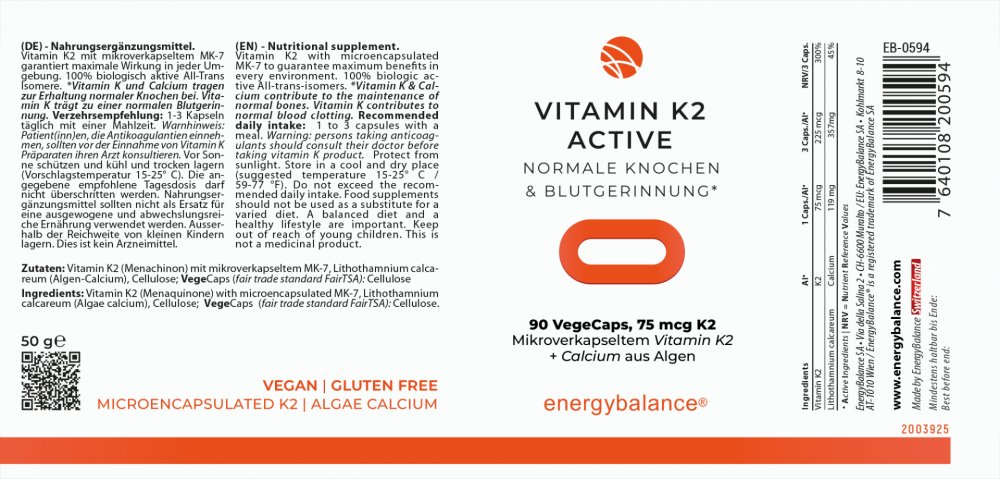
Aktive K2 is a natural supplement of vitamin K2 menaquinone (All-Trans) and calcium extracted from the seaweed Lithothamnium calcareum. Vitamin K and calcium contribute to the maintenance of normal bones, but is also useful for blood clotting problems. Each capsule is formulated to provide a balanced intake of high-quality ingredients. Aktive K2 is ideal for those seeking daily support.
**Vitamin K and calcium contribute to the maintenance of normal bones. Vitamin K contributes to normal blood clotting.
Usage. Take 1 to 3 capsules daily with a glass of water. Caution: Persons being treated with anticoagulants, should consult their doctor before the intake. . Store in a cool, dry place away from sunlight. Keep out of the reach of small children.
Ingredients. Vitamin K2 (Menachinon) mit mikroverkapseltem MK-7, Lithothamnium calcareum (Algen-Calcium), Cellulose (excipient); Cellulose (VegeCaps - FairTSA fair trade standard).
Certified High Quality. EnergyBalance supplements are developed and produced by EnergyBalance Switzerland in accordance with the highest production and food safety standards, certified by HACCP (Hazard Analysis and Critical Control Points).
| Manufacturer | EnergyBalance |
|---|---|
| Weight | 0.085000 |
| EAN | 7640108200594 |
| Application | Blood clotting, Bones |
| Dosage form | VegeCaps |
| Vegan | Yes |
| plasticfree | No |

© Copyright: The content provided by us on our website, such as text, graphics, logos, button icons, images, digital downloads and data collection, is the property of EnergyBalance SA or third parties who supply us with content or make content available on the website, and is protected by Swiss and international copyright and database law. In addition to the entire content of our online offerings, the content of our database is the exclusive property of the EnergyBalance SA and is protected by Swiss and international copyright and database law.